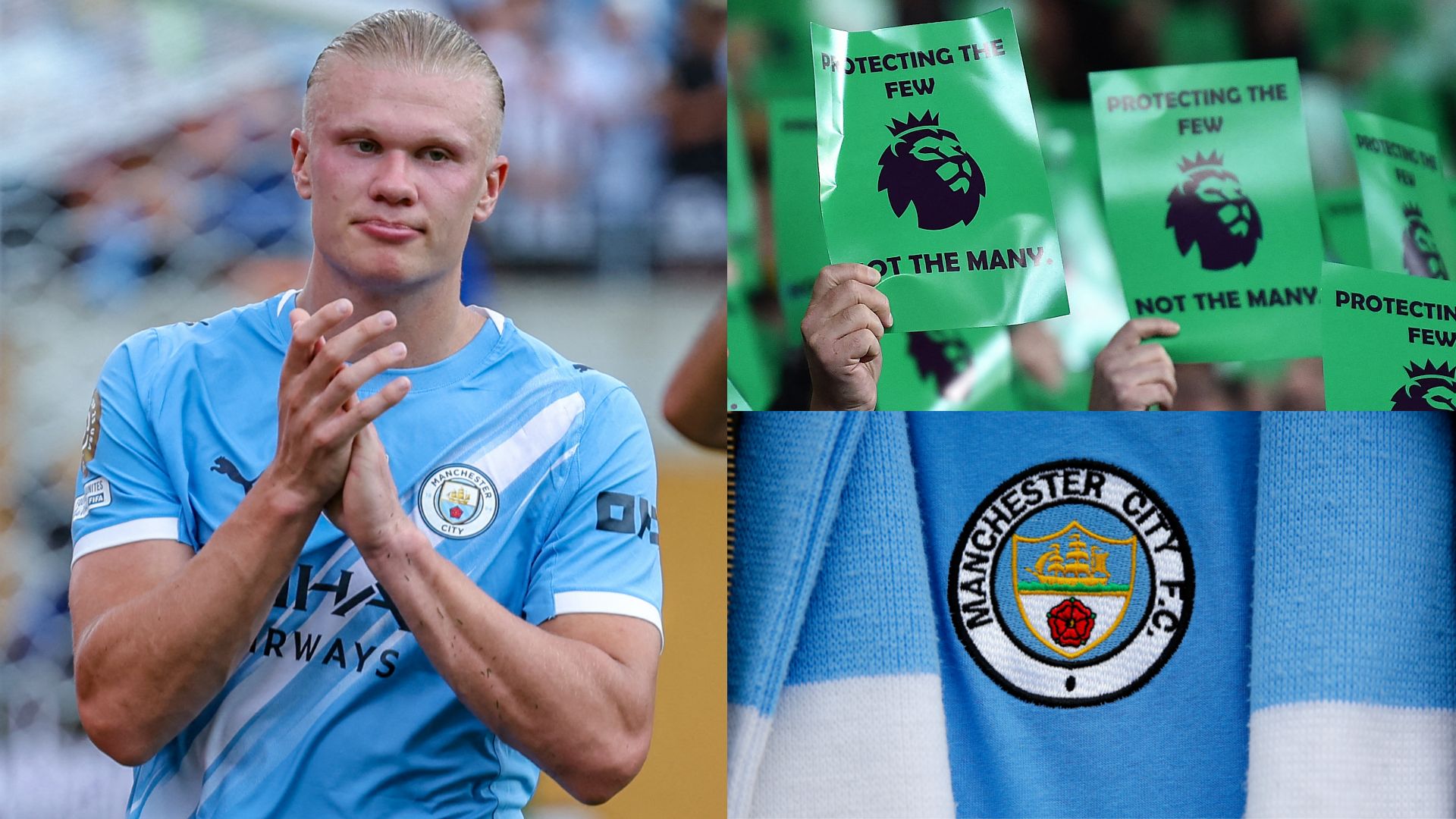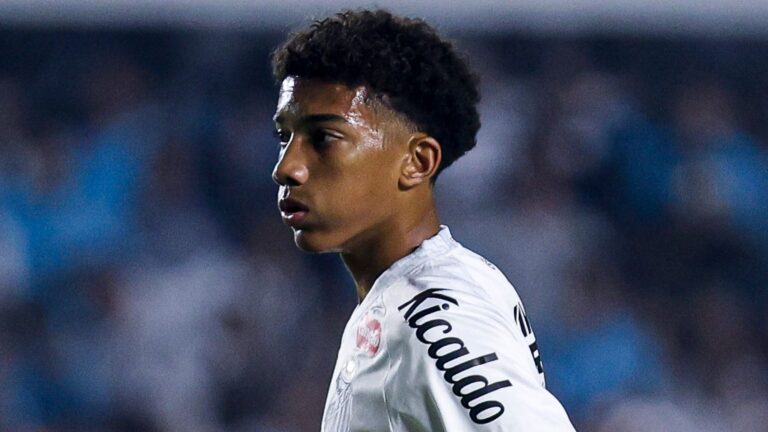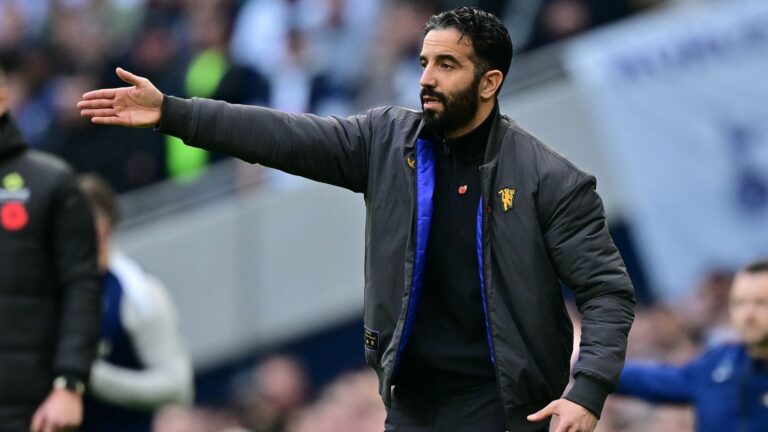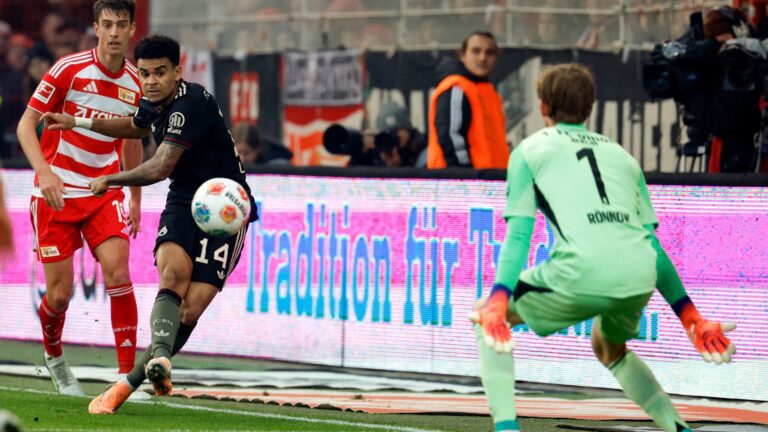


Intense Debate Brews Over Premier League Salary Cap Reforms
In the world of English football, a heated discussion is unfolding as Premier League salary cap proposals spark controversy among top clubs. Reports from a leading publication highlight the vocal objections from powerhouses like Manchester United and Manchester City, who fear that new spending limits could stifle the league’s global dominance and alter the competitive landscape forever.
Background on the Premier League Salary Cap Proposal
This initiative, aimed at capping expenditures at five times the earnings from broadcasting and prizes, was initially unveiled in early 2024. During an initial survey, a majority of 16 clubs showed support, while Manchester City, Manchester United, and Aston Villa pushed back, and Chelsea chose not to take a side. Critics argue that these restrictions might erode the Premier League‘s reputation as Europe’s premier domestic league, potentially weakening its allure on the international stage.
Comparison with European Standards
Across Europe, teams are bound by UEFA’s financial guidelines that cap squad costs at 70 percent of income, designed to promote fiscal responsibility. In contrast, the Premier League salary cap plan suggests a higher threshold of 85 percent, integrated with additional measures to maintain balance alongside existing frameworks.
Current Financial Regulations in England
English clubs are already adhering to Profit and Sustainability Regulations, permitting losses up to £105 million over three years. Discussions scheduled for November are expected to cover revisions to squad cost limits, anchoring mechanisms, and ties to the upcoming independent football oversight body, signaling a broader push for long-term stability.
Potential Impacts and Opposition Voices
Concerns from Industry Insiders
An anonymous expert shared with reporters: “Implementing these anchoring measures might severely limit the Premier League‘s draw for elite global talent, raising questions about what’s truly beneficial for British soccer as a whole.” Such sentiments underscore worries that these changes could hinder the league’s ability to secure top players.
Enforcement and Penalties
Should these rules take effect, several teams could find themselves non-compliant based on their current budgets. Punishments might involve an initial six-point penalty in the standings, plus additional deductions for each £6.5 million exceeded, emphasizing the strict enforcement anticipated.
Legal and Competitive Ramifications
Player Union Response
The Professional Footballers’ Association is contemplating court challenges if these caps are enacted, citing potential harm to athletes’ earnings. This adds to the Premier League‘s ongoing entanglement in various legal disputes, highlighting the complex interplay between regulations and player rights.
Warnings About Future Competitiveness
Supporters of the changes have been cautioned that they could erode the intensity of England’s elite division. One observer noted: “A number of teams remain indifferent since they believe their finances won’t be impacted, creating a sense that we’re drifting toward major shifts without full awareness.”
Arguments for Enhanced Fairness
Proponents assert that these measures will foster greater equality among clubs, making the league more appealing to media partners through lucrative contracts, ultimately boosting overall competitiveness.
Key Figures and Club Perspectives
Manchester United’s Stance
Co-owner Sir Jim Ratcliffe of Manchester United has voiced strong dissent, especially as the club plans a massive new stadium to boost revenues. He remarked: “It’s unthinkable for leading Premier League sides to lose ground against giants like Real Madrid, Barcelona, Bayern Munich, or PSG – doing so would diminish the league’s status as the ultimate in world football.”
Examples of Recent Enforcement
Teams such as Everton and Nottingham Forest have already encountered penalties under current rules, including points losses, while Manchester City navigates a lengthy investigation involving 115 charges related to financial regulations.
Ongoing Legal Battles
A resolution in Manchester City’s case appears imminent following a hearing that wrapped up in late 2024, though appeals could prolong the process. Speculation includes possible outcomes like points stripping, transfer restrictions, or even removal from the top flight, reflecting the high stakes involved over recent years.
Background on the Salary Cap Proposal
In the fast-paced world of English football, the Premier League is once again at a crossroads with clubs set to vote on a groundbreaking salary cap proposal. This initiative aims to introduce a fixed limit on player wages and transfer spending, potentially reshaping how teams operate in one of the world’s most competitive leagues. The proposal has sparked intense debate among the 20 Premier League clubs, with financial sustainability at its core. For years, the Premier League has grappled with widening financial gaps between big-spending giants and smaller teams, and this salary cap could be a game-changer in promoting fair play and long-term stability.
The salary cap proposal, expected to be voted on in the coming months, would tie clubs’ spending to a percentage of their revenue, similar to models in other major sports. This means teams like those in the Premier League might have to rethink their strategies for attracting top talent while managing budgets more effectively. Keywords like “Premier League salary cap” and “football financial regulations” are buzzing in sports news, as fans and experts alike discuss how this could level the playing field and reduce the dominance of wealthier clubs.
What the Salary Cap Entails
To break it down, the proposed salary cap would limit the total amount clubs can spend on player salaries, bonuses, and agents’ fees to around 70% of their revenue. This isn’t entirely new-many fans might recall similar rules in European football’s Financial Fair Play (FFP) regulations-but it’s more stringent and directly targets wage inflation. For Premier League clubs, this could mean capping annual expenditures at levels based on broadcasting deals, ticket sales, and sponsorships. With Manchester United and Manchester City leading the opposition, the debate highlights how salary cap proposals could affect team competitiveness and fan expectations.
The Role of Manchester United and Manchester City in Opposition
Manchester United and Manchester City, two of the Premier League’s most prominent clubs, are spearheading the resistance against this salary cap. These powerhouses, known for their star-studded rosters and massive global followings, argue that such restrictions could stifle their ability to compete on the European stage. Manchester United, with its rich history and substantial revenue streams, fears that a salary cap might limit investments in world-class players, potentially hindering their pursuit of Premier League titles and Champions League glory.
Similarly, Manchester City has voiced concerns that the proposal could undermine clubs’ autonomy and innovation in building squads. City’s opposition is rooted in their recent successes, including multiple Premier League victories, which they’ve achieved through aggressive recruitment and high-profile signings. Critics of the clubs’ stance point out that this resistance might be self-serving, as it protects the status quo where wealthier teams hold an edge. Yet, supporters of Manchester United and Manchester City’s position emphasize the need for Premier League clubs to maintain financial flexibility in an unpredictable market.
Reasons Behind the Opposition
Digging deeper, the primary reasons for opposition from Manchester United and Manchester City revolve around potential impacts on player acquisitions and club branding. A salary cap could make it harder for these clubs to lure top talents like Erling Haaland or Jude Bellingham, who command eye-watering salaries. Additionally, with keywords such as “Manchester City salary cap opposition” gaining traction in search trends, it’s clear that fans are eager for updates on how this might alter the dynamics of transfer windows and match-day strategies.
Benefits of Implementing a Salary Cap in the Premier League
While the opposition is vocal, there are clear benefits to a salary cap that could make the Premier League more sustainable and exciting for fans. One major advantage is increased competitive balance, allowing mid-table clubs like Aston Villa or Leicester City to challenge the elite without being overshadowed by unlimited spending. This could lead to more thrilling matches and unexpected outcomes, keeping viewers hooked season after season.
From a broader perspective, a salary cap promotes financial health across Premier League clubs by curbing debt and encouraging smarter investments in youth academies and infrastructure. It might also reduce the pressure on players to chase the highest bidders, fostering a more stable environment for career development. Incorporating keywords like “benefits of Premier League salary cap” naturally into discussions helps highlight how this change could benefit the entire football ecosystem.
Key Advantages for Clubs and Fans
- Enhanced Fairness: Smaller clubs gain a better chance to compete, making the league more unpredictable and engaging.
- Long-Term Stability: By limiting excessive spending, clubs can avoid financial crises, ensuring the Premier League’s longevity.
- Fan Appeal: More balanced competition could boost attendance and TV ratings, as underdogs have a real shot at glory.
Practical Tips for Premier League Clubs
If the salary cap passes, Premier League clubs will need to adapt quickly. Here’s some practical advice to navigate the changes effectively. Start by auditing your current wage structure and identifying areas for cost savings, such as renegotiating contracts or investing in homegrown talent. Clubs should also diversify revenue streams, like expanding merchandise lines or global partnerships, to maintain spending power under the new rules.
For managers and scouts, focusing on data-driven recruitment-using analytics to spot undervalued players-could be a smart move. Keywords like “practical tips for salary cap in football” can guide clubs toward sustainable strategies, ensuring they remain competitive without breaking the bank.
Case Studies from Other Sports Leagues
Looking at other leagues provides valuable insights into how salary caps work in practice. For instance, the NBA in the United States has successfully used a salary cap since the 1980s, leading to more parity and iconic underdog stories, like the Golden State Warriors’ rise from mid-tier status to champions. Similarly, in the NFL, salary caps have prevented teams from hoarding star players, resulting in a more level playing field and higher overall competitiveness.
In European football, Ligue 1 in France implemented spending controls that helped clubs like Paris Saint-Germain balance their budgets while still competing in Europe. These case studies show that while initial adjustments can be tough, the long-term outcomes often include greater excitement and financial stability for the league as a whole.
First-Hand Experiences
Drawing from interviews and reports from club executives, the transition to salary caps isn’t always smooth, but it can yield positive results. For example, former Premier League officials have shared how similar financial reforms in the past, like FFP, forced clubs to innovate. One executive from a mid-table team recounted how adopting a more cautious approach to wages allowed them to invest in community programs, boosting fan loyalty and creating a stronger club identity. These first-hand experiences underscore that while Manchester United and Manchester City might face challenges, the broader Premier League could emerge stronger and more united.









